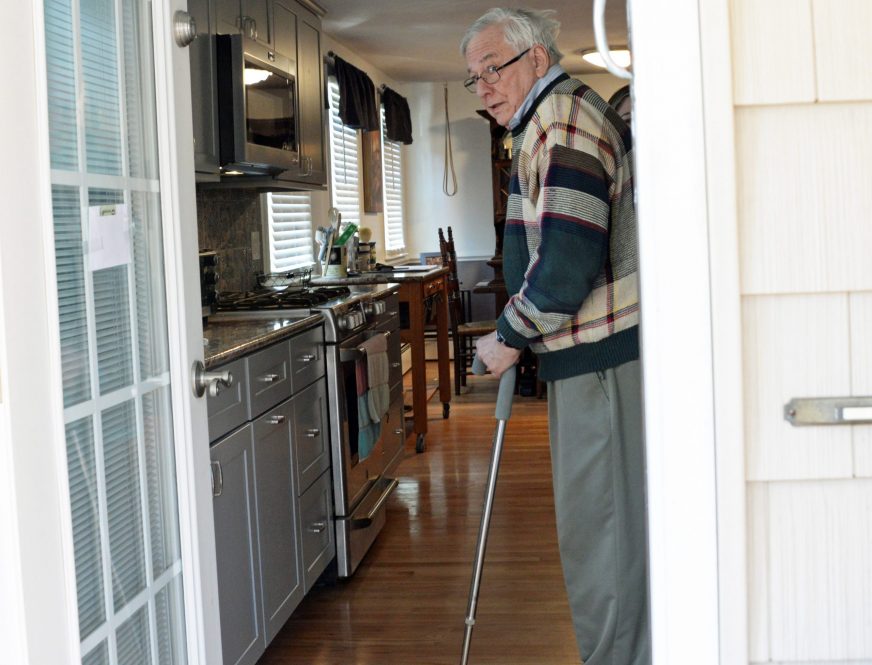Caitlin Caspi, associate professor of allied health sciences, and Kim Gans, professor of human development and family sciences, are leading a study to evaluate the effectiveness of innovations in programming that Meals on Wheels of Rhode Island (MOWRI) is implementing.
This work is funded by a $2.89 million grant from the Department of Health and Human Services Administration for Community Living.
Gans, who worked at Brown University for more than two decades before coming to UConn, maintained contacts with community organizations, like MOWRI, in the area.
When Gans learned about the initiatives MOWRI was planning on piloting, she was interested in working with them to find funding to evaluate how effective these innovations were. She contacted Meghan Grady, executive
director of MOWRI to discuss a potential collaboration.
MOWRI provides home-delivered meals for older adults, people with disabilities, and others who face nutritional challenges and food insecurity.
Older adults face higher risks of food or nutrition insecurity due to low income, lack of transportation, and accessibility issues. There is also a high rate of chronic diseases, like diabetes and heart disease, among older adults in the United States.
“This compounds the need for high-quality food and high-quality meals in this population,” Caspi says. “Because a lot of them are attending to diet related conditions.”
MOWRI is launching a program to train community health workers to serve as resources for MOWRI participants. The workers will engage participants in “health coaching” including nutrition education and chronic disease management. They will also help connect them with additional services like the Supplemental Nutrition Assistance Program (SNAP).
“Our strategic plan, MOWRI 2025, includes work to extend our reach and statewide impact through our established and successful service model,” Grady says. “This partnership and program is an exciting step for us and for our clients.”
The workers will also help coordinate support for participants, ensuring that they receive culturally appropriate meals, and food that meets their individual health needs.
“I really hope that it can improve not just nutrition and food insecurity, but go further to address the social determinants of health that are the underlying causes of a lot of issues,” Gans says.
MOWRI participants will engage with community health workers over a period of 12 weeks. During this period, the program will also provide participants with a one-month supply of shelf-stable groceries in addition to the prepared meals they receive.
“The idea of this is that during that three-month period when they’re initially signing up for Meals on Wheels they could be at the highest nutritional risk,” Caspi says. “Engaging with community health workers might lead to more sustainable supports and other programs that could help participants. At that point, they might not have as acute a need for those grocery bags.”
Approximately 1,600 MOWRI recipients will participate in the study. Participants will be randomized to receive either the community health worker interactions and food bags, or regular MOWRI services.
The researchers will measure changes in food and nutrition security, diet quality, social isolation or loneliness, and health-related quality of life.
In addition to providing high-quality food, MOWRI seeks to reduce loneliness and isolation for participants. Having someone checkup on their physical and emotional wellbeing during the week has important impacts for participants’ overall health.
“We’re testing out these additional supports and connections with the idea that they could further improve these measures of isolation and loneliness and therefore improve quality of life,” Caspi says.
The researchers hope their work will provide data to support the continuation of this program and encourage other states to implement similar innovations.
“If we find the innovations are helpful, it provides evidence for future funding and provides evidence for potential replication outside of Rhode Island,” Gans says.



